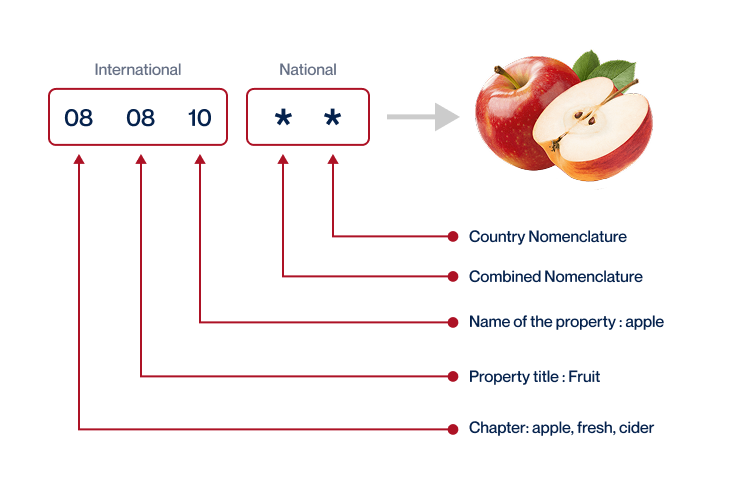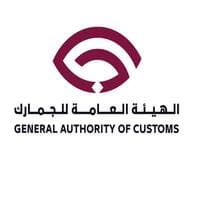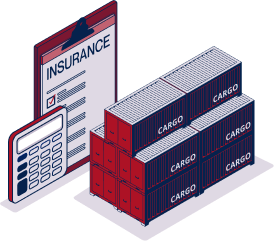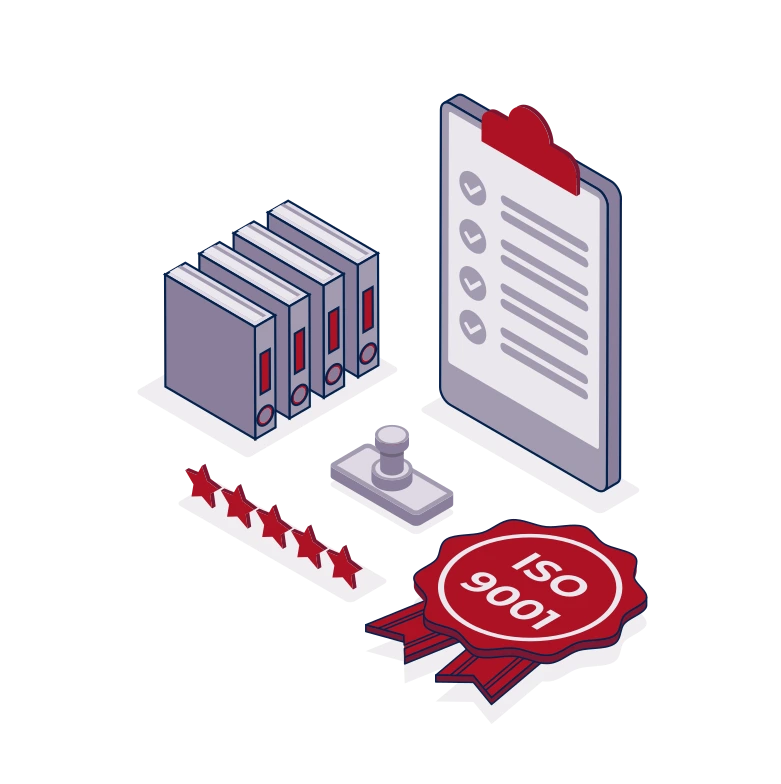Freight Shipping between Qatar and Algeria | Rates – Transit times – Duties and Taxes
If shipping goods was a concert, Qatar and Algeria would be the rockstars stuck behind the customs curtain! But no fret, this is exactly why this thorough guide has been crafted, targeted at addressing your main concerns – understanding rates, unraveling transit times, and demystifying customs regulations. This guide has your back, highlighting different types of freight options, breaking down the customs clearance process, duties, taxes, and generously doling out useful advice for businesses. You will learn how to make wise decisions and avoid common pitfalls in transporting goods between these two vibrant countries, effectively turning potential transportation hurdles into strategic advantages. If the process still feels overwhelming, let DocShipper handle it for you! As an international freight forwarder, we've mastered the art of transforming challenges into successful business stories, one shipment at a time.
Which are the different modes of transportation between Qatar and Algeria?
Picking the right transport for shipping goods from Qatar to Algeria can feel like finding a needle in a global haystack. Think of it like choosing the fastest path in a worldwide relay race. Consider our globe: the stretch between Qatar and Algeria is peppered with land and seas. Travelling by road can be tedious, like a snail trudging through a garden, thanks to multiple international borders. But, fret not! Air freight swoops in like a superhero, minimizing time and border hassles. Remember, like in a relay race, the fastest method isn't always the winner - it must fit your shipping needs too!
Need help with your shipment?
Need assistance with your shipment? Dont hesitate to contact us even for a simple question. Choose the option that suits you
Live chat with an expert Chat on WhatsApp Free Quote 24hHow can DocShipper help you

Sea freight between Qatar and Algeria
Welcome to the bustling world of ocean shipping between Qatar and Algeria! As gateways to Africa and the Middle East respectively, these nations maintain a vibrant trade relationship, with sea freight linking key industrial hubs. The Qatari port of Mesaieed and the Algerian port of Algiers form a significant axis of this international exchange.
Despite its leisurely pace, ocean freight rules the waves as the most economical solution for those heavier, high-volume consignments. That said, it’s no stroll on the beach. Many businesses hit choppy waters negotiating the myriad rules and regulations across these borders.
Think of it like trying to solve a jigsaw puzzle. The pieces represent all the shipping obligations you need to fulfill; having them all doesn’t necessarily mean your puzzle will fit together. But don’t despair, this guide provides a detailed map of best practices to help simplify your shipping and build a picture of success. Let’s dive in and get those shipments smoothly sailing!
Main shipping ports in Qatar
Hamad Port
Location and Volume: Hamad Port is strategically located in Umm Al Houl, providing the perfect entry point to the Gulf region. The port boasts a shipping volume of 2.99 million TEUs, as of 2020.
Key Trading Partners and Strategic Importance: Hamad Port’s crucial trading partners encompass China, United States, India, Oman and Saudi Arabia. The port is strategically significant as it plays a pivotal role in Qatar’s food security plan and functions as a vital link in Qatar’s supply chain and trade operations with the world.
Context for Businesses: If you’re planning to access markets in the Middle Eastern region or establish relations with the key trading partners, Hamad Port can be an ideal choice. Its advanced facilities and strategic location make it a viable gateway for your product’s quick and efficient reach to these markets.
Doha Port
Location and Volume: Located in the heart of Qatar’s capital, Doha Port, predominantly a cruise ship terminal, also caters to freight transport with a relatively smaller shipping volume.
Key Trading Partners and Strategic Importance: With Qatar being an integral part of the Middle Eastern economies and its evolving position in the international market, Doha Port’s trading network is vast, spanning across the globe. The port holds strategic importance due to its location, serving as a transit point for different ships and types of cargo.
Context for Businesses: Doha Port might be the best option for your business if you’re aiming to directly venture into Qatar’s bustling economic hub. While the volume of goods handled is smaller compared to Hamad Port, it is still a promising point of entry to the local markets, especially if your business operations involve cruise ships.
Please note that though Qatar has other ports like Ras Laffan and Mesaieed, they mainly cater to specific industries like oil and gas and do not serve general cargo. Hamad and Doha port are your primary interests when it comes to general freight transportation.
Main shipping ports in Algeria
Port of Algiers
Location and Volume: Situated in the capital city, the Port of Algiers is one of Algeria’s primary maritime facilities. It primarily handles containers and has an annual shipping volume of approximately 3.5 million tons.
Main shipping ports in Algeria
Port of Algiers
Location and Volume: Situated in the capital city, the Port of Algiers is one of Algeria’s primary maritime facilities. It primarily handles containers and has an annual shipping volume of approximately 3.5 million tons.
Should I choose FCL or LCL when shipping between Qatar and Algeria?
Picking the perfect sea shipping strategy between Qatar and Algeria can feel like a high-stakes puzzle. Whether you choose Full Container Load (FCL) or Less than Container Load (LCL), it could drastically recast your cost and delivery timeline. It’s not just a choice; it’s a strategic decision teeming with potential. Let’s embark on a journey to understand these freight options better, unraveling their pros and cons, so you can pick the one that seamlessly aligns with your shipping needs and champion a successful freight process.
Full container load (FCL)
Definition: FCL, or Full Container Load, refers to shipping a large quantity of goods in dedicated containers - either a standard 20'ft or larger 40'ft FCL container.
When to Use: If your cargo volume is more than 13-15 CBM, FCL shipping becomes the more cost-effective and secure option. The whole container is reserved for your goods, offering improved safety, as it remains sealed from origin to destination.
Example: A Doha-based furniture manufacturer decides to export a large consignment to Algeria. The inventory fills up a 20'ft FCL container completely. Here, FCL shipping is practical, due to the volume of the goods, the improved safety from sealing at origin, and cost-effectiveness.
Cost Implications: FCL can be cheaper for high volume shipments over LCL (Less than Container Load) because you are not paying for the unused space. You'll usually get a full FCL shipping quote, rather than a per unit or per freight charge. However, certain costs like loading and unloading charges may apply, and it's important to factor these potential expenses into your budget when considering FCL between Qatar and Algeria.
Less container load (LCL)
Definition: LCL (Less than Container Load) shipping refers to a consolidation method used when your cargo does not fill up an entire container. Multiple shippers pool their respective shipments into one container, making it a cost-effective choice.
When to Use: This option proves especially beneficial when your cargo is less than 13 – 15 CBM. Due to its flexibility, businesses with relatively small volumes of cargo between Qatar and Algeria frequently opt for LCL shipping.
Example: Let's consider an automotive parts manufacturer from Qatar exporting a cargo of 10 CBM to a client in Algeria. Operating on a tight budget, they can go for LCL shipment, rather than booking a whole container and dealing with excess space.
Cost Implications: Even though the per-CBM price in LCL freight is higher than Full Container Load (FCL), it is cheaper for low volume shipments. It lets you pay only for the space you use, leaving more funds for other aspects of your operations. While providing greater control over your shipping budget, it also serves to simplify the logistical process.
Hassle-free shipping
Consider DocShipper, your comprehensive freight forwarder relieving the complexities of cargo shipping between Qatar and Algeria. Our ocean freight experts guide you to choose optimally between consolidation or full container shipping, taking into account factors like volume, budget, and time sensitivity. Make an informed decision and optimize your shipping costs with our help. Ready for a smooth shipping experience? Connect with us for a free estimate today.
Sea freight between Qatar and Algeria typically clocks in at around 15 to 25 days, depending on several factors – this includes but is not limited to the specific ports used for departure and arrival, the weight and nature of the goods being transported. Given the complexity, we strongly recommend contacting a professional freight forwarder like DocShipper to receive a tailored quote.
Below we provide you with a text representation of the average transit times for sea freight between the primary freight ports in both countries:
| Port of Qatar | Port of Algeria | Average Transit Time (Days) |
| Port of Doha | Port of Algiers | 19 |
| Port of Doha | Port of Oran | 22 |
| Port of Doha | Port of Annaba | 20 |
| Port of Doha | Port of Skikda | 18 |
*It’s fundamental to take into account that mentioned shipping durations are subject to change and can vary depending on a variety of circumstance. For the most accurate information, consider discussing your specific shipping needs with a freight forwarding specialist.
How much does it cost to ship a container between Qatar and Algeria?
Ocean freight rates between Qatar and Algeria can greatly vary, typically falling within a broad range when considering shipping cost per CBM. Why such a wide spectrum, you wonder? Factors such as the Point of Loading, Point of Destination, the specific carrier involved, the kind of goods being transported, and monthly market fluctuations come into play. It’s complex, but rest assured, this is where our expertise shines. Our shipping specialists analyze each client’s needs on a case-by-case basis, working diligently to deliver the best rates possible in this ever-changing landscape of international shipping.
Special transportation services
Out of Gauge (OOG) Container
Definition: OOG containers are specially designed for goods that exceed standard container dimensions in length, width, or height.
Suitable for: Ideal for large, heavy items that can’t fit into standard containers.
Examples: Machinery equipment, windmill parts, large industrial parts.
Why it might be the best choice for you: If your business deals with out of gauge cargo that doesn’t conform to standard sizes, this is a tailor-made solution that ensures safe and secure transportation.
Break Bulk
Definition: Break bulk refers to cargo that is too large or heavy to be loaded onto a standard container. These goods are therefore loaded individually onto the vessel.
Suitable for: Large items that need to be individually handled and transported.
Examples: Construction equipment, oil and gas materials, heavy machinery.
Why it might be the best choice for you: If your cargo consists of large, un-containerized items, break bulk could provide the comprehensive solution your business needs.
Dry Bulk
Definition: Dry bulk refers to commodities shipped in loose form, like grains, coal or fertilizer.
Suitable for: Bulk items not requiring packaging.
Examples: Agro commodities like wheat or corn, minerals, construction materials.
Why it might be the best choice for you: If your business transports loose cargo loads such as grains or sand, choosing dry bulk is an economical and efficient option.
Roll-on/Roll-off (Ro-Ro)
Definition: Ro-Ro vessels are equipped with built-in ramps which allow vehicles to be driven on and off the ship.
Suitable for: Vehicles and machinery on wheels.
Examples: Cars, trucks, trailers, buses, construction equipment.
Why it might be the best choice for you: If your business needs to transport wheel-based items, the roll-on/roll-off method provides a straightforward and secure solution.
Reefer Containers
Definition: Reefer containers are refrigerated units used for shipping temperature-sensitive goods.
Suitable for: Perishable goods requiring temperature control.
Examples: Fruits, vegetables, meat, dairy products, pharmaceuticals.
Why it might be the best choice for you: If your cargo requires a particular temperature during shipment, reefer containers provide the perfect climate-controlled environment.
At DocShipper, we understand the complexities of international shipping and strive to provide personalized, safe, and efficient solutions for every business. To discuss your shipping needs between Qatar and Algeria, feel free to contact us for a free quote in less than 24 hours. We look forward to aiding your business!
Air freight between Qatar and Algeria
Shipping packages from Qatar to Algeria? Speed is key. Air freight could be your magic carpet – it’s swift, reliable, and perfect for smaller, high-value goods like electronic devices or special clothing. Consider how much you could save by not renting large shipping containers.
But watch out, misconceptions about air freight can trip you up. Many shippers overspend, thinking it’s the weight of their goods alone that determines cost. The truth is, it’s like solving a puzzle – the size, weight, and type of your products all play a part. Many shippers aren’t aware of the costly pitfalls and end up paying more than they bargained for. Get ready though, we’ll break it all down and help you dodge these common errors.
Air Cargo vs Express Air Freight: How should I ship?
Deciding between Air Cargo and Express Air Freight for deliveries from Qatar to Algeria? Picture this: Air Cargo is akin to economy class, flying your goods within the trusted belly of scheduled airlines, whereas Express Air Freight is your private charter, propelling you into the fast lane with a dedicated plane. Let’s carve a clear path forward by understanding the ins and outs of these attractive options, ensuring your business reaches its destination in the most effective way.
Should I choose Air Cargo between Qatar and Algeria?
Choosing Air Cargo for shipping between Qatar and Algeria can be a savvy move. Renowned airlines like Qatar Airways and Air Algérie handle freight impeccably, offering reliable services. While transit times may be longer due to schedules, the cost-effectiveness compensates. As your shipment exceeds 100 kg (220 lbs), air cargo becomes even more attractive. This option may align well with your budget constraints and time-sensitivity. Make informed decisions about air cargo for an efficient, reliable transportation solution.

Should I choose Express Air Freight between Qatar and Algeria?
Choosing Express Air Freight could be the perfect answer for your smaller, time-sensitive shipments. This specialized service uses dedicated cargo planes—it’s like your package hops on a private jet! If your shipment amounts are under 1 CBM or weigh 100/150 kg (220/330 lbs), world-renowned couriers like FedEx, UPS & DHL offer this speedy option. With Express Air Freight, not only are you guaranteed fast delivery, but you also enjoy peace of mind knowing your package is in the hands of reliable industry leaders. Pick this option for quick, hassle-free shipping from Qatar to Algeria.

Main international airports in Qatar
Hamad International Airport
Cargo Volume: Hamad International Airport handled 2.3 million tonnes of cargo in 2019, making it one of the key global cargo hubs.
Key Trading Partners: This airport serves as an essential link for trade between Asia, Europe, and Africa. It has known trading partnerships with countries like China, United States, and Germany.
Strategic Importance: Located in Doha, the airport is within Emirate’s economic and political center, bearing strategic significance for facilitating global trade and serving domestic needs.
Notable Features: High cargo-handling capacity and ultramodern facilities including refrigerated, live animal, and dangerous goods handling. Also, the airport is the home base of Qatar Airways Cargo, the world’s third-largest international cargo carrier.
For Your Business: Its vast network and strategic location mean your goods have quick, efficient access to various markets. If your business trades with Asian or European partners, this airport is an excellent choice considering speed and connectivity. It also caters to a range of cargo types, giving you flexibility in what you can ship.
Al Udeid Air Base
Cargo Volume: It doesn’t have a publicly available figure of commercial cargo volume as it’s primarily a military base with some civil uses.
Key Trading Partners: Its major users are military forces from the United States and other NATO countries. The extent of its commercial partnerships hasn’t been publicly shared.
Strategic Importance: Al Udeid Air Base is located southwest of Doha and primarily serves military purposes, but it has facilities to handle cargo as well, thus adding to its strategic importance in times of heightened military activity.
Notable Features: Its primary use by military forces often results in less commercial congestion but more stringent security measures.
For Your Business: If your business involves shipping military-related goods or needs extra security measures, the Al Udeid Air Base provides an opportunity for a less congested but highly secured transportation. However, its usage may be subject to tighter restrictions and policies due to the military nature.
Main international airports in Algeria
Houari Boumediene Airport
Cargo Volume: Approximately 51,637 tonnes of cargo as of 2020.
Key Trading Partners: The largest share of cargo traffic comes from Europe specifically France, Italy, and Spain.
Strategic Importance: As the largest and busiest airport in Algeria, it becomes an essential gateway for goods moving in and out of the country.
Notable Features: The airport’s central location in Algiers allows easy access to main transport arteries serving the entire country.
For Your Business: Its expanding cargo infrastructure and direct connections to many international destinations make it an excellent choice for businesses aiming to export or import goods from Algeria.
Oran Ahmed Ben Bella Airport
Cargo Volume: Handled over 2,500 tonnes of freight in 2020.
Key Trading Partners: Key routes include France, Spain, and other destinations within North Africa.
Strategic Importance: It’s the second busiest airport in Algeria located in Oran, Algeria’s second biggest city, a major industrial and commercial center.
Notable Features: Recent expansion in cargo capacity now allows handling of larger cargo volumes.
For Your Business: If your company is dealing with industries located in Western Algeria, using Oran Ahmed Ben Bella Airport as a pivot might be a more efficient and cost-effective freight strategy.
Constantine Mohamed Boudiaf Airport
Cargo Volume: Statistics are sparser but the airport is part of the small group of Algerian airports with dedicated cargo handling facilities.
Key Trading Partners: Main connections are within North Africa and Europe.
Strategic Importance: Being in the country’s third largest city, Constantine, the airport serves an area with significant industrial activity.
Notable Features: It operates 24/7, facilitating faster throughput of goods.
For Your Business: If your business targets the eastern part of Algeria, this airport can provide a well-connected point of entry and exit to facilitate your freight arrangements.
Tlemcen Zenata Airport
Cargo Volume: Figures for cargo volume are not readily available as it primarily services passenger flights with some dedicated freight services.
Key Trading Partners: European countries such as France and Spain.
Strategic Importance: It serves Tlemcen, a city in north-western Algeria, that has a bustling clothing and textile industry.
Notable Features: Though smaller, it offers capacity for cargo operations and is operating 24/7.
For Your Business: If you operate within the textiles industry, this airport may offer direct connections to your supply chain given Tlemcen’s industry focus.
Béjaïa Airport
Cargo Volume: While primarily a passenger hub, it has cargo services.
Key Trading Partners: France, Spain, and other countries within North Africa.
Strategic Importance: Located in Béjaïa, a major trading port city, the airport’s location helps facilitate both sea and air freight services.
Notable Features: Its proximity to the port of Béjaïa offers unique multi-modal freight options.
For Your Business: If your freight logistics require a combination of sea and air shipment, Béjaïa Airport offers a flexible option to meet your complex shipping needs.
How long does air freight take between Qatar and Algeria?
Shipping goods by air freight from Qatar to Algeria typically takes between 3 to 6 days. However, this timeline is not definite and can fluctuate depending on various factors. The exact airports the shipment is moving between play a large role in this time. Also, the weight of your cargo and the nature of goods you’re shipping, whether they are fragile, perishable, or dangerous, can impact transit time. To get the most accurate timeline for your specific needs, consult a seasoned freight forwarder like DocShipper.
How much does it cost to ship a parcel between Qatar and Algeria with air freight?
Air freight costs between Qatar and Algeria can broadly range from $3 to $8 per kg. But, it’s essential to understand that shipping rates fluctuate based on various factors, including distance from departure and arrival airports, dimensions and weight of the cargo, and the type of goods being transported. In such a dynamic scenario, providing an exact rate is challenging. However, at our firm, we pride ourselves on tailoring solutions to your unique shipping needs and delivering the most competitive quotes. Contact us, and get your personalised freight rates in under 24h. Let’s simplify your logistics.
What is the difference between volumetric and gross weight?
Gross weight refers to the actual weight of your shipment, including packaging and the shipping container, measured in kilograms (kg). Volumetric weight, also known as dimensional weight, is a pricing technique for commercial freight transport, factoring in how much space an item occupies in relation to its actual weight.
To calculate the gross weight in air freight, simply weigh the entire shipment, including all packaging, and record the result in kilograms. For instance, if your shipment, complete with its container, weighs 15kg, that’s the gross weight. In pounds, that’s about 33 lbs.
Calculating volumetric weight may vary slightly between Air Cargo and Express Air Freight, though the principle remains the same. The formula for Air Cargo is: (Length x Width x Height in cm) / 6000. For Express Air Freight, we use: (Length x Width x Height in cm) / 5000. Let’s use the example of a box measuring 50cm in length, 40cm in width, and 30cm in height. The volumetric weight in Air Cargo would be (50 x 40 x 30)/6000 = 10 kg (roughly 22 lbs), while in Express Air Freight it would be (50 x 40 x 30)/5000 = 12kg (around 26.5 lbs).
Why does this matter? In air freight shipping, carriers charge based on the higher of the two weights – gross or volumetric. This pricing technique ensures carriers are rightfully paid for the space taken up by the shipment, not just its actual weight. It’s crucial to get these calculations right to understand your potential shipping costs.

Door to door between Qatar and Algeria
Navigating the logistics maze? Door-to-door shipping, an all-inclusive service that covers transportation from pickup to delivery, may be your ticket to simplicity. Especially between Qatar and Algeria, it offers standout perks like reduced stress and time-efficiency. So, ready to unravel its advantages? Let’s dive in!
Overview – Door to Door
Embarking on the shipping journey from Qatar to Algeria can seem daunting with its complex customs procedures and transportation challenges. But here’s where door to door shipping shines through as a beacon of convenience. Known for its stress-free nature, our clients at DocShipper often choose this service. Advantages include the ease of a single point of contact and comprehensive handling of procedures; however, costs may be higher. Despite this, many believe the extra expense is worth it for the trouble-free experience. So, if you’re seeking a streamlined, comprehensive solution for your shipping needs, door to door shipping could be your panacea.
Why should I use a Door to Door service between Qatar and Algeria?
Ever wondered if teleportation could make your business freight problems disappear? Well, since science hasn’t caught up to our dreams yet, a Door-to-Door service is your closest bet when it comes to moving goods between Qatar and Algeria. Here are the top five reasons why you should opt for this service:
1. It’s virtually stress-free logistics: No need to concern yourself with the nuances of supply chains. With Door-to-Door service, your goods are picked up and delivered right from and to your desired locations. Everything from pickup, transit, and delivery is handled expertly — sit back and relax.
2. Timely delivery for urgent shipments: Your shipment timeline is sacred. With this delivery model, you’re not just buying transport; you’re buying reliability and speed, ensuring your urgent shipments reach in the nick of time.
3. Specialized attention for your complex cargo: Every cargo is unique, and your complex cargo deserves special attention. With Door-to-Door service, you’re availing a service tailored to get your precious consignment from point A to point B intact.
4. One-stop convenience: The process of shipping overseas can be a handful with various intermediary steps. This service handles everything including trucking to the final destination, saving you the headache.
5. Predictable costs, no surprise charges: Being aware of your total cost upfront simplifies budgeting and removes any fear of hidden shipping charges.
Remember, Door-to-Door service is like your personal freight concierge, taking care of all your shipping needs while you focus on what matters most: growing your business. And until teleportation is a reality, this seems like the next best thing, doesn’t it?
DocShipper – Door to Door specialist between Qatar and Algeria
Experience stress-free shipping from Qatar to Algeria with DocShipper. As logistics experts, we manage the entire process for you, from packing to transportation, customs clearance, and delivery, ensuring a seamless door-to-door service. Our dedicated account executives are ready to provide tailored solutions, guiding you through every step. Ask for a free estimate within 24 hours, or discuss your needs with our free consultation service. Trust us with your shipping demands, and we’ll deliver excellence.
Customs clearance in Algeria for goods imported from Qatar
Customs clearance, the complex labyrinth of importing goods, can seem daunting with its myriad of hurdles, unforeseen fees, and the looming risk of goods stagnating in customs. Navigating this maze in Algeria, especially for goods arriving from Qatar, demands an in-depth understanding of duties, taxes, quotas, and licenses. Ensuring that you’re well versed with these aspects could be the difference between smooth trading operations and unnecessary hold-ups. The following sections will unravel these intricacies, helping you understand them and safeguard against potential pitfalls. Rest assured, DocShipper is here to assist you in the entire process. If you are wondering how to budget your project, just contact our team with your goods’ origin, value, and the HS Code. Armed with these three key pieces of information, we can proceed with an estimation. Remember, preparation is paramount in international trading.
How to calculate duties & taxes when importing from Qatar to Algeria?
Embarking on the journey to estimate customs duties when importing goods from Qatar to Algeria may seem challenging, but a clearer understanding of the process can make it far less daunting. The key lies in unraveling certain vital pieces of information. Before starting, you’ll need to identify the country where the goods were manufactured or produced, as this piece of information is essential for duty estimation. Besides the country of origin, you’ll also need to know the ‘HS Code’ or ‘Harmonized System Code’, a universally accepted classification system for goods, of your products. Another crucial element is the ‘Customs Value’. This value, which can be determined on the basis of transaction value or calculated value, can significantly impact your duty obligations. Add to this the ‘Applicable Tariff Rate’, which can vary significantly, influencing the overall cost. Remember, other taxes and fees may also apply depending on the nature of your goods, so be sure to factor these in as well. This initial legwork may seem overwhelming at first, but it is indeed the first step towards a smooth and complaint importing journey.
Step 1 – Identify the Country of Origin
Know where your product is made or grown, the country specifics? That’s Step 1 – Identifying the Country of Origin. Here are five compelling reasons for its importance:
1. Trade Accords: Qatar and Algeria share certain preferential trade agreements that can favorably affect customs duties.
2. Product Restrictions: Determined by the country of origin, some goods are subject to import restrictions in Algeria.
3. Quotas: Specific limits on certain imports from Qatar may apply, making early identification essential.
4. Anti-dumping laws: Knowing your origin country defends against punitive anti-dumping duties.
5. Different duty rates: Duties vary greatly based on origin; early identification helps with accurate estimates.
Utilize our easy-to-use tools to assist you in determining your product’s country of origin. This might seem straightforward, but remember, your business can greatly benefit from special tariff reductions and exemption depending on the country of origin. Accuracy is essential; estimate your duties correctly and comfortably proceed with shipping from Qatar to Algeria. Know the basics, avoid the confound and reap the benefits.
Step 2 – Find the HS Code of your product
The Harmonized System Code, or HS Code, is a global nomenclature to classify a diverse array of traded products. This internationally standardized system allows for the easy identification, classification, and taxation of goods across borders. It is a crucial component in international trade, playing a key role in import-export customs clearances and determining taxes or tariffs to be paid.
If you’re questioning how to find the HS Code for your product, the simplest method is to inquire directly with your supplier. They are well-versed in their products and related regulations, and should readily provide you with the HS Code.
However, in cases where this information isn’t readily available, we’ve got you covered with an easy step-by-step process:
Step 1 – Use the ‘Harmonized Tariff Schedule‘
Step 2 – Enter your product’s name in the search bar
Step 3 – Look at the Heading/Subheading column for your product’s HS Code
Please note that the accuracy in selecting the correct HS Code is paramount. An incorrect code could lead to not only delays in shipments but also severe administrative penalties. Therefore, always ensure the accuracy of the code to avoid possible fines and shipping roadblocks.
Here’s an infographic showing you how to read an HS code.

Step 3 – Calculate the Customs Value
It’s common to confuse the customs value of your goods shipped from Qatar to Algeria, with their actual value. Yet, they’re far from the same thing! Customs value takes the CIF value – a term you may have heard tossed around in logistics circles. Basically, the CIF value stacks the cost of the goods, international shipping fees, and insurance together. For instance, let’s say the value of your goods is $500, the shipping cost is $200, and your freight insurance sets you back $30. Your CIF, or customs value, in this case, would actually be $730. Understanding this distinction is pivotal to navigate – and budget for – the customs clearance process effectively. Before loading up that shipment, always remember, your shipment’s worth is more than the simple sticker price of the goods inside!
Step 4 – Figure out the applicable Import Tariff
Import tariffs, also known as customs duties, are taxes levied on goods brought into a country. They’re crucial in international trade. For Algeria, these tariffs are based on the Harmonized System (HS) aligned with World Customs Organization standards.
To identify the applicable import tariff for importing goods from Qatar to Algeria, follow these steps:
1. Go online and learn about the specific category of your goods based on the HS codes
2. Consult with your local customs authority or use online trade tools that provide detailed tariff information.
3. Input the identified HS code and the country of origin.
As an example, let’s say you’re importing ceramic flower pots (HS code 6913) from Qatar. Once you’ve input the HS code and selected Qatar as your origin country, suppose you identify a tariff rate of 5% for these pots.
Now, to calculate import duties once you establish the tariff rate, you need CIF costs (Cost, Insurance, and Freight). Think of it as the total price of getting your goods to Algeria. For instance, let’s assume CIF costs to be USD 10,000 for a consignment of ceramic pots. Your import duties would be 5% of the CIF costs, which amounts to USD 500.
Like a sunflower tracking the sun, direct application of this knowledge to your business decisions can optimize your trade process. Don’t hesitate to reach out to experts in your field to ensure accurate tariff categorization and successful transition through customs.
Step 5 – Consider other Import Duties and Taxes
In addition to the standard tariff rate, you might encounter extra import duties upon bringing goods into Algeria from Qatar. One such charge could be an excise duty, imposed on certain products such as tobacco, alcohol, or luxury goods. Similarly, anti-dumping taxes may apply if Algeria believes that the imported good is priced significantly lower than the local market value, hence harming its economy.
Then there’s VAT, arguably one of the most important duties as it can considerably impact your shipping costs. In Algeria, the standard VAT rate is around 19%, but differs based on the type of product.
Let’s illustrate with an example. If you’re importing luxury watches valued at $10,000, bearing a standard tariff of let’s say, 15%, the tariff due would amount to $1,500. Now, assuming the VAT rate for watches is 19%, this levied on the combined value of the goods plus tariff ($11,500), thus giving an additional $2,185. So, expect to fork out $3,685, minimum, in fees.
Remember these costs serve only as examples and actual rates may vary, so it’s prudent to keep updated with Algeria’s customs duty framework.
Step 6 – Calculate the Customs Duties
In simplifying the calculation of customs duties for goods imported from Qatar to Algeria, different scenarios exist. Firstly, if you’re just dealing with customs duties, consider the total customs value of your shipment. For a $1,000 package, at a 15% customs rate, your customs charge is $150.
Scenario two involves both customs duties and VAT. Let’s assume a customs value of $2000, a customs rate of 15% ($300) and a VAT of 19% applicable on customs value and duty ($438); the total cost here would amount to $738.
Lastly, incorporating anti-dumping taxes and excise duty, suppose your customs value is $5,000 with a customs rate of 15% ($750), VAT at 19% ($1,093) and an anti-dumping tax of $500 plus an excise duty of 10% ($750), you’ll owe a total of $3,093.
Note, these are simplified examples and real-world calculation could involve other taxes or exemptions. That’s exactly where we, at DocShipper, come into play! Our experienced team ensures a seamless customs clearance worldwide while guaranteeing that you’re never overcharged. Reach out to us for your free quote in less than 24 hours.
Does DocShipper charge customs fees?
Navigating the world of shipping and customs can be tricky. As your customs broker in Qatar and Algeria, DocShipper charges for customs clearance services, which is separate from your actual customs duties and taxes, a direct payment to the government. But don’t worry, to ensure your peace of mind, we’ll provide the official customs office documents as concrete proof you’re paying no more than the government’s charge. Decoding the shipping jargon, one guide at a time!
Contact Details for Customs Authorities
Qatar Customs

Official name: General Authority of Customs, State of Qatar Official website: https://www.customs.gov.qa/
Algeria Customs

Official name: Algerian Customs Directorate-General Official website: http://www.douane.gov.dz/
Required documents for customs clearance
Unsure of the paperwork needed for a smooth customs clearance? We’ve got your back! Let’s decode the essentials like the Bill of Lading, Packing List, Certificate of Origin, and CE standard documents. These are your keys to unlock the gates of international trade without any hiccups. Dive in for a surefire guide to customs paperwork.
Bill of Lading
Negotiating ocean or air freight between Qatar and Algeria? The Bill of Lading (BOL) or Air Waybill (AWB) is crucial to facilitate the ownership transition of your goods. With ocean freight, the BOL is a legal receipt confirming the vessel has received your shipment, while the AWB performs a similar role for air cargo. These documents are critical in settling disputes and claiming insurance – imagine trying to prove ownership of 1,000 widgets without one!
Now, let’s ride the digital wave. Consider utilizing a ‘telex’ (electronic) release for your BOL. It streamlines correspondence, kind of like moving from fax to email. You’ll save time, trees, and dodge potential delays caused by lost documents. Fast, smooth, and eco-friendly – your logistics have never looked better.
Packing List
Navigating customs between Qatar and Algeria? Your journey starts with an accurate Packing List. This simple document is the backbone of every shipment, providing crucial details about what’s tucked inside your containers. Whether you’re air-lifting equipment or seaward-bound with textiles, it will be your passport at each checkpoint.
Now, imagine your cargo contains 500 LED TV sets. Without a precise Packing List highlighting the product description, quantity, and weight, clearing customs becomes a migraine. Errors or inconsistencies can spark unnecessary delays, questioning, or even rejection.
As a shipper, the responsibility is on your shoulders to ensure every line is accurate and clear. Think of it as the translator between you and the customs officers. A correctly compiled Packing List streamlines procedures, catapulting your shipments from Doha to Algiers with speed and ease.
Commercial Invoice
When shipping goods from Qatar to Algeria, your Commercial Invoice is lifeline. Think of it as your shipment’s biography, detailing crucial information like the buyer and seller’s details, detailed product description, price, currency used, incoterms, and the country of origin. Because it is a mainstay in customs clearance, any error in details can trigger frustrating delays. For instance, if the product description in your Invoice doesn’t align with the Packing List, you might be bidding the fast clearance goodbye. So, avoid generic terms – be accurate, be detailed. Also remember, Algeria’s customs abide by specific requirements and customs guidelines – knowing them beforehand saves hassle. Thus, don’t shy away from seeking professional advice for a seamless shipping experience. Better safe than sorry, right?
Certificate of Origin
When shipping from Qatar to Algeria, the Certificate of Origin (CoO) is your golden ticket. Acting as a kind of birth certificate for your goods, it verifies their place of manufacture. For instance, if you’re exporting aluminium from Doha, the CoO verifies that the product truly originates from Qatar. But here’s the kicker: a correctly declared CoO may sanction preferential customs duty rates, saving your business vital bucks. Never underestimate its power; a small oversight like failing to mention the country of manufacture can send your cargo into administrative limbo or worse, increase your duties. Relieve your journey from unnecessary hiccups and always double-check your CoO. It’ll always pay off.
Get Started with DocShipper
Prohibited and Restricted items when importing into Algeria
For smooth operations, it’s critical to understand Algeria’s import regulations. Unexpectedly encountering prohibited or restricted items can disrupt your freight and increase costs. We’re here to simplify this complex process, ensuring you avoid unwanted surprises.
Are there any trade agreements between Qatar and Algeria?
Currently, no specific Free Trade Agreements (FTAs) or Economic Partnership Agreements (EPAs) exist between Qatar and Algeria. However, both nations are part of the Greater Arab Free Trade Area (GAFTA) easing trade conditions. Ongoing discussions are underway exploring a bilateral trade agreement, which could enhance opportunities in the near future. Therefore, stay up-to-date; this could offer beneficial changes for your business in the shipping landscape. Infrastructure projects, like the recent Qatar-Algeria joint venture in steel production, highlight the growing cooperation between these countries, indicating potential for thriving trade.
Qatar – Algeria trade and economic relationship
With robust historical ties, Qatar and Algeria’s economic relationship has deep roots. The steady growth of bilateral trade reflects their strong cooperation. The energy sector headlines their joint ventures, with Algerian oil and gas exports to Qatar and Qatari investments in Algeria’s energy infrastructure. A remarkable milestone was touched in 2022 when the joint volume of trade exceeded $54 million USD, a testament to burgeoning economic ties. From machinery to chemical products, a diverse range of commodities forms the trade palette. Leveraging these robust economic bonds, Algerian-Qatari partnerships continue to explore further collaboration avenues. The ongoing projects and future plans offer a promising vision of increased trade volumes and value, energizing the overall economic panorama of both nations. The potent blend of history, commitment, and possibility characterizes the Qatar-Algeria economic relationship.
Your first steps with DocShipper
Additional logistics services
Warehousing
Finding the right warehousing and storage solution in Algeria for your Qatar-bound goods can be a true challenge. If you're dealing with temperature-sensitive products, a poorly chosen warehouse can spell disaster. But don't fret. Our specially designed warehousing services tick all the right boxes for safety, reliability, and yes, temperature control. Don't risk your products getting compromised. Instead, explore more on our Warehousing page.
Packing
In shipping from Qatar to Algeria, hiccups can occur when products are improperly packaged or repackaged, endangering their safety in transit. This is where a reliable agent comes in, managing the process from start to finish. Imagine having handmade ceramics, securely wrapped and shielded, reaching their destination intact. We ensure your goods, from delicate glass items to robust machinery, receive the precise packaging attention they deserve.

Transport Insurance
Think of Cargo Insurance as a safety net for your goods while in transit. Unlike fire insurance, it doesn't solely cover risks linked to fire but a wider spectrum like theft, damage, and loss. To paint a clearer picture, imagine a storm at sea damaging your consignment of ceramics. With the right cargo insurance, kiss these headaches goodbye as it would cover all these unforeseen eventualities, minimizing your financial risk. Thus, it stands as a must-have in your shipping endeavors.

Household goods shipping
Shipping personal effects from Qatar to Algeria can be daunting, especially when dealing with delicate or large items. Imagine safely sending that heirloom mirror or robust home cinema system! Our trusted team handles these odds-and-ends with the utmost professionalism and flexibility, ensuring your belongings reach Algeria in perfect condition, no matter their size or fragility. It's about peace of mind in your moving adventure.
Procurement in Thailand
Facing sourcing obstacles in Asia or East Europe? Embrace DocShipper's Supplier Management service. We link you with the right suppliers and ease your procurement journey, tackling language barriers head-on. Picture this: a sofa manufacturer in Qatar sourcing high-grade fabric from Algeria, seamlessly – that's us in action. For the inside story, head to our Sourcing services page.

Quality Control
Quality control is your ally when shipping goods between Qatar and Algeria. Imagine you're shipping handcrafted furniture - without inspections, a faulty chair could slip through, disappointing your Algerian client and costing you in returns. A thorough check during manufacturing safeguards your product quality, building trust with your customers while saving your business from unnecessary hassles. Invest in quality, save on stress.

Conformité des produits aux normes
Shipping goods can sometimes feel like finding your way through a maze. With our product compliance services, no need to worry about regulatory hurdles. We ensure your goods pass the necessary laboratory tests and gain the required certifications. The journey between these specific ports? Smooth sailing. And the reward is confidence that your shipment meets all the guidelines at its final destination. Your business relies on it, and so do we.






